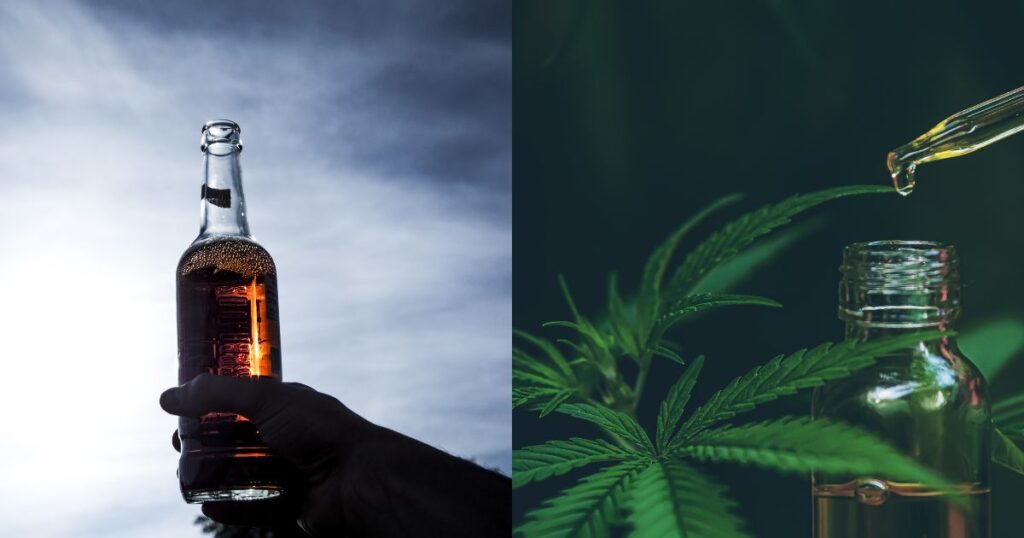Cannabidiol (CBD), a non-intoxicating compound derived from cannabis, is known for its potential to address various health issues. From aiding anxiety reduction to pain management, and now, as new research uncovers, it may also have a role in reducing alcohol binge drinking. A study published in the British Journal of Pharmacology explored the effects of CBD on alcohol consumption using mouse models, giving us intriguing insights into its potential applications.
The CBD Study and Its Approach
The researchers behind this study were driven by a complex question: Could CBD reduce excessive alcohol consumption, and if so, how does it work? To find the answers, they designed an experiment using the “drinking-in-the-dark” (DID) model in mice. This approach closely replicates some of the behavioral patterns seen in human binge drinking, making it particularly suited for testing new interventions.
The researchers tested CBD dosages ranging from 7.5 to 120 mg/kg. Researchers administered the compound via intraperitoneal injection to ensure precise control and uniform results. They then carefully monitored the mice’s behaviors to assess changes in alcohol consumption and evaluate potential side effects, such as locomotor impairments.
One area of focus was understanding the mechanisms through which CBD exerts its effects. To achieve this, the researchers evaluated interactions between CBD and various brain receptors, including the serotonin-1A receptor (5-HT1A), PPARɣ, CXCR4, and the newly studied neuropeptide S receptor (NPSR). By blocking these receptors, the scientists could identify their contribution to CBD’s impact on alcohol intake.
Promising Results in Reducing Alcohol Consumption
The findings were striking. Higher doses of CBD significantly reduced binge-like alcohol drinking in a dose-dependent manner.
Crucially, this reduction wasn’t the result of locomotor impairments or sedation, which suggests that CBD works directly on specific physiological mechanisms related to drinking behaviors.
The study also highlighted some key insights into CBD’s mechanism of action. Notably, serotonin-1A and PPARɣ receptors were ruled out as primary pathways for reducing alcohol consumption. Instead, the researchers discovered that the neuropeptide S receptor (NPSR) might play a pivotal role in mediating CBD’s effects. Co-administration of CBD with an NPSR antagonist further reduced alcohol intake, reinforcing this receptor’s importance.
Interestingly, the study maintained positive results during sub-chronic administration, meaning the effects of CBD persisted over longer periods. This finding addresses a critical need for sustained treatment options in combating alcohol use disorders.
What This Could Mean for Humans
While this study was conducted on mice, the implications for humans are significant. CBD’s ability to reduce binge drinking behaviors could potentially translate into a novel approach for treating alcohol use disorder (AUD). Since current pharmaceutical options for AUD often come with unpleasant side effects or limited long-term efficacy, CBD might offer a more natural and sustainable alternative.
Additionally, CBD’s impact on the NPSR receptor may pave the way for targeted drug development. Understanding this receptor’s role in alcohol-related behaviors could allow scientists to create treatments that minimize off-target effects, improving both safety and effectiveness.
It is noteworthy that this study builds upon earlier observations that cannabis use can influence alcohol consumption behaviors. Other research has highlighted a correlation between cannabis consumption and reduced alcohol cravings, adding weight to the argument that cannabinoids like CBD could improve outcomes for individuals battling AUD.
Challenges Ahead and Areas for Future Research of CBD on Binge Drinking
While the findings are encouraging, there remain several hurdles before CBD can become a mainstream option for treating problem drinking. For one, transitioning from animal models to human applications requires rigorous clinical trials. What works in mice does not always translate seamlessly into human biology, as complexities in metabolism, neural chemistry, and behavior vary significantly.
Another challenge lies in determining the optimal dosage for humans. The doses used in mice were relatively high, and effective scaling to human trials will be necessary to ensure both efficacy and safety. Furthermore, researchers need to clarify whether factors like gender or baseline drinking behaviors influence how CBD works.
Finally, while the study’s attention to mechanisms like the NPSR is promising, the polypharmacological nature of CBD—with its ability to interact with multiple receptor types—is both an advantage and a challenge. Identifying the most crucial mechanisms in human alcohol-related behaviors will take years of focused investigation.
The potential of CBD to reduce binge drinking opens up exciting new possibilities for addressing alcohol-related harm. This study highlights the versatility of CBD as a compound and its ability to interact with various brain mechanisms to produce therapeutic effects.
If these findings hold true in human trials, CBD could not only provide relief for individuals struggling with AUD but also contribute to the development of safer, more effective treatment options in the future.
















